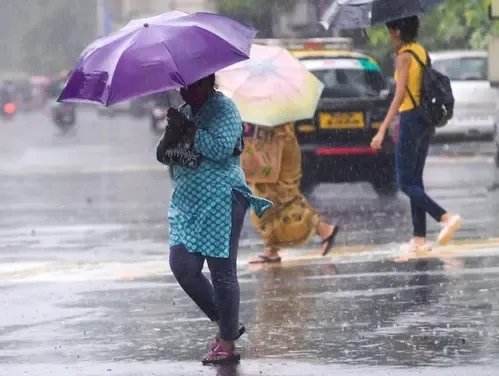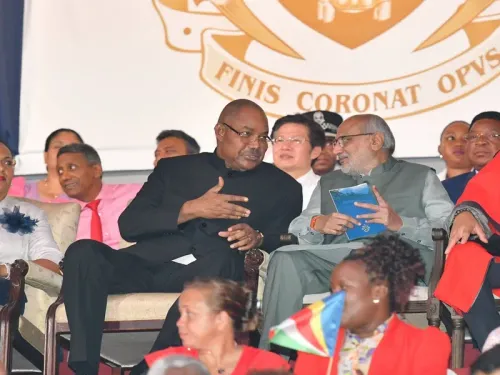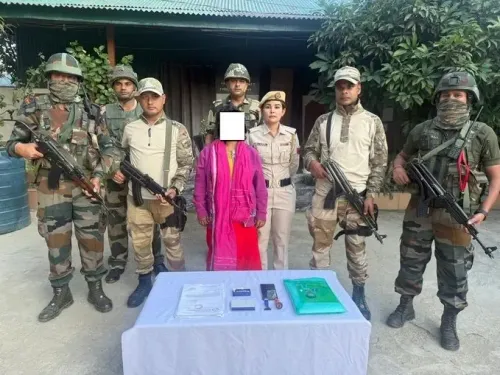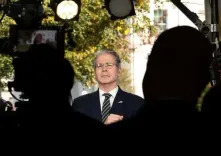Gujarat Unveils Budget: ₹3.7 Lakh Crore Focused on Education, Infrastructure, and Welfare

Synopsis
Key Takeaways
- ₹3.7 lakh crore budget presented by Kanu Desai.
- ₹59,999 crore allocated for education initiatives.
- Focus on sustainable agriculture and rural development.
- Over ₹40,000 crore earmarked for healthcare improvements.
- Significant investments in infrastructure and smart cities.
Gandhinagar, Feb 20 (NationPress) The Finance Minister of Gujarat, Kanu Desai, revealed the state budget for 2025-26 in the Assembly, showcasing a historic allocation of ₹3,70,250 crore. This marks the fourth consecutive budget under his stewardship, with a strong emphasis on education, infrastructure, skill development, and social welfare.
A standout feature is the ₹59,999 crore allocation for education, which underlines Gujarat's commitment to modernizing its educational framework in line with global benchmarks and the Viksit Bharat 2047 initiative.
The budget significantly stresses on enhancing education quality and accessibility. The Mission Schools of Excellence program is set to receive ₹2,914 crore, facilitating infrastructural upgrades in over 25,000 classrooms. The Namo Lakshmi Yojana will have ₹1,250 crore earmarked for promoting girls’ education, while ₹782 crore will be allocated under the Right to Education (RTE) Act to assist students in private institutions. The Namo Saraswati Vigyan Sadhana Yojana will aid 2.5 lakh students with an allocation of ₹250 crore, and ₹223 crore has been set aside for student transport concessions in State Transport (ST) buses.
The Gyan Shakti Residential Schools of Excellence will receive ₹200 crore to enhance residential education facilities. Scholarships also see a considerable boost, with ₹100 crore for the Gyan Sadhana Merit Scholarship, benefiting 75,000 students, and ₹70 crore for the Gyan Setu Merit Scholarship, assisting 90,000 students. The recruitment of over 22,000 teachers in government and aided schools is in progress, aiming to address staffing issues and enhance educational standards. A significant portion of the budget is allocated for infrastructure development, concentrating on roadways, public transport, and smart city initiatives.
Crucial investments include ₹5,000 crore for road expansion, ₹4,000 crore for smart cities, and ₹3,500 crore for urban housing projects. The government aims to bolster connectivity between industrial hubs and rural areas, propelling economic growth. The healthcare sector has been assigned over ₹40,000 crore, aimed at establishing new hospitals and upgrading existing medical facilities.
Noteworthy initiatives include the incorporation of AI-based diagnostics in government hospitals to improve patient care. The Ayushman Bharat Yojana has been allocated ₹3,200 crore, ensuring broader health coverage for low-income households.
Gujarat's focus on women’s empowerment continues with ₹15,000 crore allocated to schemes promoting nutrition, financial independence, and safety. The Namo Lakshmi Yojana and Mukhyamantri Mahila Udyam Yojana are pivotal programs fostering education and entrepreneurship among women.
The government also intends to fortify anganwadis and child nutrition programs, ensuring enhanced healthcare for children in both rural and urban settings.
With Gujarat establishing itself as an industrial hub, the budget prioritizes job creation and entrepreneurship. The state has allocated ₹10,000 crore for skill development and startup incentives, concentrating on IT, AI, renewable energy, and manufacturing sectors. New training centers and incubation hubs will be established to equip youth with industry-ready skills. To enhance Gujarat’s agricultural sector, the government has allocated ₹25,000 crore for irrigation, smart farming techniques, and crop insurance subsidies.
The Mukhyamantri Kisan Yojana will receive significant support, ensuring improved irrigation and financial assistance for farmers. The focus lies on sustainable agriculture, water conservation, and the adoption of technology-driven farming practices. Gujarat has committed ₹12,000 crore towards solar, wind, and hydrogen power projects. The state aims to increase its solar capacity by 5,000 MW and invest in electric vehicle (EV) infrastructure, positioning Gujarat as a significant player in India’s green energy transition.
Finance Minister Desai presented the budget in a red-colored 'pothi' (ledger book), departing from the traditional briefcase. The pothi was embellished with Warli paintings and Ahir embroidery, symbolizing Gujarat’s rich tribal and folk heritage. The Ashoka Stambh was also prominently displayed, reflecting national pride and governance.









